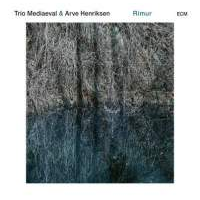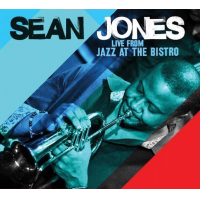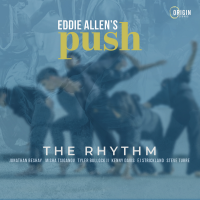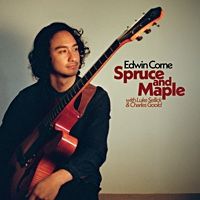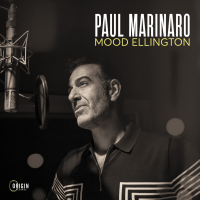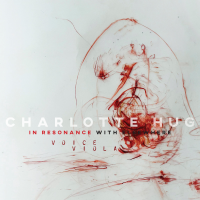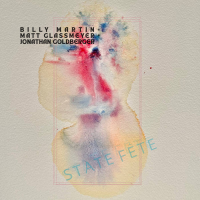Home » Jazz Articles » Album Review » Lyn Stanley: The Moonlight Sessions, Volume 1
Lyn Stanley: The Moonlight Sessions, Volume 1
Stanley has made it a sharp point to pay close attention to the sonics of her recordings. She has always been able to surround herself with the best musicians and record in the warmest of environments—like Hollywood, CA's Capitol Recording Studios, and Los Angeles, CA's The Village Studios and LAFx—using Frank Sinatra's Telefunken U47 ("Telly") microphone, to boot. The recordings were analog mixed and mastered to 1/4" 30ips stereo tape, with engineering provided by Al Schmitt/Steve Genewick (tracking); Michael Bishop (mixing) and Bernie Grundman (mastering). The media produced for distribution are: One-Step 180 gram/45RPM/Double Vinyl LP; stereo SACD (Super Audio CD) Hybrids; and 1/4" 15ips reel-to-reel tape. What all this gear-head speak means is that the environment for the music has all the proper sonic nutrients and dry warmth to produce the type of recorded sound we, of a certain age, can remember hearing. Stanley's aim is to record and produce media able to provide test material for high-end audiophile playback systems; to do it thoughtfully and creatively; and to honor the music produced.
Stanley's repertoire here is already amply time-tested to the point where it is fair to ask, ..."if we could possibly need one more standards vocal set?" Every generation needs an artist to set an example of how the songs making up the Great American Songbook are performed as nominally envisioned by the composers. For me, my introduction to the Songbook was through Linda Ronstadt's mid-'80s standards recordings, What's New (Asylum, 1983); Lush Life (Asylum, 1984); and For Sentimental Reasons (Asylum, 1986). Were these great vocal recordings? I suspect they were good enough as they got me interested in these songs from the 1920s-'50s that basically defined a jazz canon after 1945.
For the front end of the 21st Century, a solid argument can be made that Lyn Stanley is an artist bearing the mantle of teacher, to a new generation of music listeners, of the times and places from which jazz, instrumental and vocal music came. This extant collection of songs called "standards" has been nothing if not durable in its various interpretations. What Stanley provides in her previous three recordings, and now The Moonlight Sessions, Volume 1, is an elegantly conservative approach to these songs that can be compared to that of Frank Sinatra. Sinatra had great respect for the composers and songwriters providing him material, and he honored them in his styling of their songs. His interest was never about improvisation; it was always about sincere and well-balanced delivery. So, too, is Stanley's charge. Her recordings' superb sonics and carefully considered arrangements provide a nourishing environment for her to present these songs in a sophisticated manner befitting their introduction to the newly exposed.
Finally, Stanley reminds us of the difference between a "song stylist" and a "jazz singer," though, if we were to construct a proper Venn diagram, there would certainly be overlap between the two. In comparison, Stanley has more in common with Sinatra than, say, Betty Carter. She is not going to detonate some barrage of scat and vocalese fireworks; rather, Stanley delivers her melodies unadorned by nothing more than her warm and intimate alto voice. On The Moonlight Sessions, Volume 1 Stanley addresses her material with spare yet graceful instrumental ornamentation. Her rhythm section is anchored by pianists Mike Garson, Christian Jacob, and Tamir Hendelman; bassist Chuck Berghofer; and drummers Ray Brinker, Bernie Dresel, {Joe LaBarbara}}. Added to this considerable firepower are other notable musicians, specifically chosen for the given compositions.
Stanley's Volume 1 recital kicks off with a clever "All or Nothing at All," bookended with trumpet quotes (courtesy of Chuck Findley) from George Gershwin's A Rhapsody in Blue. That little touch adds a sepia patina to the song before Stanley brings the song into the present. Stanley sings con brio, as does Findley in his finely-structured obbligato and solos. Tenor saxophonist Rickey Woodard digs deep, producing a muscular, virile tone to play foil to Stanley's coolly jaded protagonist on "Willow Weep for Me." The tempo is measured and determined, never lagging: a hard feat to achieve at slow tempo. The inclusion of Glenn Miller's "Moonlight Serenade" (with lyrics by Mitchell Parish) is a pleasant surprise and a smart nod to the Swing Era, when jazz was the popular music. Again, Stanley sings languidly, with a crepuscular recline in her voice.
"My Funny Valentine" and "Embraceable You" deserve added attention for their ubiquity in recorded literature. Music writer Scott Yanow's published "Ten Songs That Should Be Avoided" in his book The Jazz Singers: The Ultimate Guide (Backbeat, 2008). This list necessarily includes "My Funny Valentine." Unless one can bring something dramatically new to this war-horse as Laurie Antonioli did darkly on her 2015 Varuna (Origin Records), it should be allowed to rest. My defense for Stanley's inclusion is her beautiful and conservative treatment, which presents the melody as originally intended. Then, compare it to Chet Baker's idiosyncratic Chet Baker Sings (Pacific Jazz, 1954) to hear two vastly different approaches to the same song. This same reasoning works for "Embraceable You": Listen to Stanley's purring performance of the tune, and then to Charlie Parker's famous 1947 recording to hear what the big deal about jazz is.
That said, Stanley did not play everything by the book. Her performance of Willie Nelson's (by way of Patsy Cline) "Crazy" is arranged as a polite roadhouse romp where the singer lets her hair down. The inclusion of Brenda Lee's "Break It to Me Gently" is inspired, forcing the perimeter of what are considered "standards" a little further out. Stanley closes with "The Wee Small Hours in the Morning," reminding us, of necessity, of Frank Sinatra in our musical collective consciousness...and of the necessity of Lyn Stanley and her mission. Now, on with Volume 2!
Critic's Note: Anno Domini 2017, marks the 100th Anniversary of recorded jazz, deftly noted by the release of the Original Dixieland Jazz Band's shellac "Dixieland Jass Band One-Step (A)/Livery Stable Blues (B)," Victor 18255, recorded February 26, 1917 and released March 7, 1917. Just for perspective, in 1917, my father was 18 months old and my mother was yet to be born for two years. It is also the twentieth anniversary of me writing for All About Jazz. The first recording I reviewed for the magazine was Art Pepper's San Francisco Samba (Contemporary, 1997), published December 1, 1997. I am using this present review as part of a series noting my twentieth anniversary with the magazine and paying special tribute to my fellow writers at All About Jazz and Publisher Michael Ricci.
Track Listing
All of Nothing at All; Willow Weep for Me; Moonlight Serenade; My Funny Valentine; Embraceable You; Why Don’t You Do Right; Girl Talk; Crazy; Close Your Eyes; How Insensitive; Break It to Me Gently; In the Wee Small Hours.
Personnel
Lyn Stanley
vocalsLyn Stanley: vocals; Mike Garson: piano; Christian Jacob: piano; Tamir Hendelman: piano; Chuck Berghofer: bass; Ray Brinker: drums; Bernie Dresel: drums; Joe LaBarbara: drums; Luis Conte: percussion; John Chiodini: guitar; Chuck Findley: trumpet; Rickey Woodard: tenor saxophone; Bob McChesney: trombone; Hendrik Meurkens: harmonica.
Album information
Title: The Moonlight Sessions, Volume 1 | Year Released: 2017 | Record Label: A.t. Music Llc
Tags
PREVIOUS / NEXT
Support All About Jazz
 All About Jazz has been a pillar of jazz since 1995, championing it as an art form and, more importantly, supporting the musicians who make it. Our enduring commitment has made "AAJ" one of the most culturally important websites of its kind, read by hundreds of thousands of fans, musicians and industry figures every month.
All About Jazz has been a pillar of jazz since 1995, championing it as an art form and, more importantly, supporting the musicians who make it. Our enduring commitment has made "AAJ" one of the most culturally important websites of its kind, read by hundreds of thousands of fans, musicians and industry figures every month.




